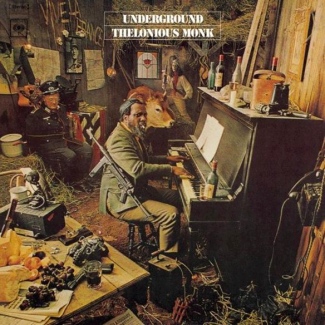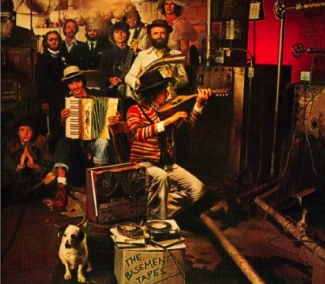In no particular order, here are ten thoughts about technology and society at the end of 2014 and the beginning of 2015. This past year might have been the one in which it was acknowledged that the ecological catastrophe and the destruction of the biosphere has passed the rubicon. Scientists are beginning to understand that the most important battles will be fought within rhetoric and not science. The Pope may have a greater effect on the future of the planet than any climate scientist.
Sony Pictures Hack
All computer networks are always already hacked. Once you have both the requirement that networks interoperate in a network of networks and that humans be able to simply and easily use software on the system, the system is compromised.
What this hack tells large corporations (and other organizations) is that if they become the target of a sufficiently strong hacker, they will be hacked. Certainly there is better and worse security, but there's no such thing as perfect security.
This problem is too frightening to contemplate as we put more and more of our transactions and records into hackable systems. At some point in the next five years there will be a hack that will change the way we organize and think about networks. In the meantime we will pretend that everything is just fine. Damn the torpedos, full speed ahead.
Cameras on Police (Google Glass)
What's bad about Google Glass for ordinary people turns out to be what may eventually be forced on police officers. In this era, it's always a question of who's watching the watchers. Total surveillance of the police is an interesting turnaround in the dynamics of power. Assume that it will turnaround again and the only unambiguous video evidence will be on the side of law enforcement.
Oddly even the police will ultimately decide that Google Glass style total surveillance is a bad idea.
Library Collections and Live Events
Netflix, Spotify, Amazon Prime, Pandora and HBO all provide membership access to their libraries. Each has learned that the way to spice up your library is to produce exclusive content that makes your collection unique. It's also a way to get the first release window for a new property. Traditionally these kind of libraries are very late, if not last, in the release cycle.
We're starting to see promotional events around the deletion of items from a collection. See it before it's gone. Initially there was a sense that these libraries had an infinite amount of content. There was so much more than you could ever watch or listen to. After spending a little time with them, Sturgeon's Law comes into effect. Turns out the 90% of everything in the library is crap, and you've seen the other 10%.
At some point someone will figure out that quality is more important than quantity. It might be HBO. They are well positioned to stake out that ground.
YouTube will be exposed as a file-sharing site and the true heir to Napster. The creative class will rebel and bring massive lawsuits against the theft of their work. The technologists at YouTube will claim that they are a machine and a medium; that they are not responsible for their users actions. This excuse will be seen for the cynical ploy that it is.
Live events are the other main category type in broadcast media. News, sports, awards shows, talk shows have dominated. The return of live television will continue. The live productions of Peter Pan and The Sound of Music were tests. Live television demands a different kind of talent. That means there's incredible opportunity for the Network has the vision and takes the risk. Broadway and live theater will be pillaged for talent.
Live Mix, Daniel Lanois
This was the year that Daniel Lanois downsized his operation. He took the live groove mixing and treatments that he was hearing in his studio and put them on small stages in front of a few hundred people.
This is a return to the days of Brian Eno live mixing and treating Roxy Music shows. The recording studio became a musical instrument for the recording studio. That technology is migrating back to the stage as more players emerge who know how to handle it in a live context.
In the show I saw, the drummer Brian Blade was keeping perfect metronymic time. This allowed Lanois to mix in samples and have them mesh exactly on the beat. It's early days for these kind of experiments, but it fulfills the promise of the recording studio as musical instrument.
The Permanent Record / Stain
The digital remains unforgiving. One wonders if there will ever be an artificial intelligence that understands forgiveness. We have a digital record of all our triumphs, failures and transgressions. Our flaws, errors and mistakes become a permanent record and an eternal stain on our character. Despite the much-hyped advances in technology, computers and artificial intelligence, there is no mechanical understanding of propriety or forgiveness. The algorithm doesn't know, and isn't programmed to understand, whether it's appropriate to gather up highlights of your year out of your social stream and show them to you.
This was the year we began to understand that technology is cruel, ignorant and inappropriate. The current crop of technologists are ill equipped to handle this problem. They've been told as long as it makes money, morality and propriety are unimportant.
In the Shadows
The gaps in total surveillance will be sought out and become more valuable. We will begin to prefer the digital shadows, where we exist unrecorded. Time and its “it was” will have a cultural resurgence.
The hollowness of live broadcasting your “real life” 24 hours a day, 7 days a week will become obvious. Simple recording or broadcasting of a personal event will no longer be considered the best way of memorializing something.
Marcel Duchamp and Art
The idea that anything can be “art” if the “artist” says it is will lose currency. What started out as a joke has become a dominant mode of understanding (or not understanding) art. In our nihilistic age, if anything can be art then nothing is really art. The devaluation of aesthetics and art begins with the inability to distinguish art from any other object.
The anthropocene and the general visibility of the finitude of the earth and its biosphere ends the concept that human imagination can turn a thing into any other thing. There's a corollary to this idea which states that in the interpretation of art or literature, any reading is acceptable. Anything can mean anything.
The sixth mass extinction and the end of a biosphere that will support human life isn't an event that can be interpreted as meaning just anything our whims desire. It's strange that it's only after the end of the world as we knew it that art may re-emerge.
Non-Digitally Reproduced, Object Interaction
There's a theory about the resurgence of vinyl records that states that it's the physicality of the experience that's the main attraction. Commodities give the illusion of exact duplication of an industrially produced object. But my record has peanut butter and jelly stains on the cover and the 4th track on side two has some crackles during a quiet part. One of my copies of Milton's “Paradise Lost” has some notes in the margin and a couple of underlines. The type is small, but readable and the paper is old.
The digitally reproduced is identical or it malfunctions. We've been sold the idea that we're getting the essence of recorded music when we listen to the digital file. All the excess has been peeled away. We might even think that the digital file is more environmentally friendly.
The process of listening to vinyl pressings of recordings introduces a physical set of interactions that change the experience of listening. There's nothing necessarily essential about vinyl records, liner notes and album art. But the physicality of the experience is vastly different than the unspooling and decoding of 1s and 0s by a small computer.
Hard Drive + Air Gapped
This seems unlikely, but non-networked sharing may return. Local files, hard disk drives, and computers unconnected to the network. Like the acoustic guitar, which required a new name when the electric guitar made the scene, the air-gapped computer will require a special moniker.
A kind of network will be created in these sneaker-net exchanges, but it will be between people with something to share. Because these networks wouldn't be between anonymous nodes over long distances, they would create a different kind of community.
True Sharing Economies
Because technology is firmly located within, and at the service of, Capital, it's incapable of sharing. Sharing means gifting use of something you own. As has been widely acknowledged, the so-called “sharing economy” is the rental economy.
With wage growth stalled, and the great recession still a strong presence, many people have taken to renting out rooms to make ends meet. We should just call this business what it is. The utopian technological dream has been unmasked as a sweatshop inside a panopticon.
If you're looking for a sharing economy, you'll need to move outside the boundaries of capitalism. Sharing has a different morality and a different goal. Technology has a role, but the implementations look very different. Check out the p2p Foundation to get a sense of what a “sharing economy” might look like.
Comments closed



